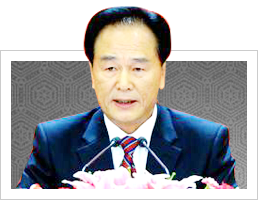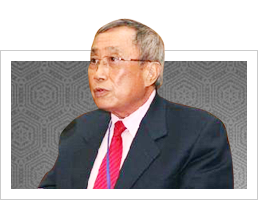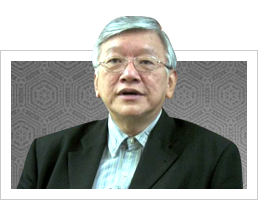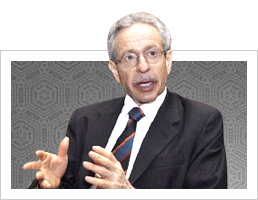Chinese Dream includes strong PLA
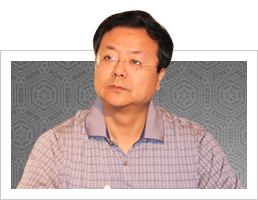
The author is deputy director of the Institute for Strategic Studies at the National Defense University.
As President Xi Jinping has said, an important task for the country under new circumstances is to build a strong military that is "absolutely loyal" to the Communist Party of China, will abide by discipline and be ready to ensure victory in any war.
A solid military is a prerequisite for building a well-off society in an all-round way in China and rejuvenating the Chinese nation. As emphasized at the 18th National Congress of the CPC, China has to develop a strong national defense force that would be in line with the country's global standing and meet the needs of national security and economic development.
But the Chinese Dream, especially the dream to build a strong military, is often seen by the West as part of China's attempt to establish military hegemony. The truth is, China has always been a peace-loving country and it firmly pursues the path of peaceful development and will never seek hegemony and expansion.
If the Americans can have an "American dream" and the Europeans a "European dream", there is no reason why the Chinese people cannot have a Chinese Dream.
To realize the Chinese Dream, China has to achieve national development and socialist modernization through peaceful and civilized means. In this context, the West has nothing to worry about the modernization of China's military. Unlike former colonial powers, China has never invaded another country. On the contrary, it has always advocated (and still does advocate) harmonious coexistence, seeking common ground and shelving differences.
The PLA as a pillar of State security follows the trend of the times and follows a principle that is different from colonial aggression and expansion. And China firmly believes in the principles of peace, cooperation and development of military ties with other countries.
Besides, the more than three decades of rapid economic growth that China has experienced was not based on beggar-thy-neighbor policy. Instead, it was based on reform and opening up China's market to the outside world. China's policy has benefited the rest of the world as well as itself.
In recent years, especially after the global financial crisis, China has become the engine of global economic growth. Facts and figures testify that the Chinese Dream, including the dream to build a strong military, is one of peace and win-win development for China and the rest of the world.
The Chinese Dream includes building China into a modern socialist country that is prosperous, powerful, democratic and harmonious. It entails the goal of national reunification and requires China to help maintain world peace and facilitate the development of the human race.
It is thus clear that the modernization of China's defense forces is an essential part of national rejuvenation. If its military is strong, China can be on the way to realize the dream of rejuvenating the nation.
Connotations of Chinese Dream
Inspired by the Chinese Dream, more and more people have begun to chase their own dreams, including dreams to receive better education, start businesses, purchase homes and get rich. People firmly believe that as long as they work hard, their dreams would come true. [more]
Chinese dream and China's governance
A great deal will depend on how Xi Jinping will actually implement the core features of the program he has laid out and how he will seek to create incentives and constituencies to support his programmatic goals.In sum, President Xi has now made very clear where he stands and where he wants the country to go under his leadership, and he has achieved wide-ranging endorsement of this overall program. [more]
Chinese Dream includes strong PLA
The PLA as a pillar of State security follows the trend of the times and follows a principle that is different from colonial aggression and expansion. And China firmly believes in the principles of peace, cooperation and development of military ties with other countries. [more]
The Chinese dream and peaceful development
The most difficult issue in the region now is the the relationship between China and Japan regarding overlapping claims on the Diaoyu, or Senkaku, islands group. The problem is residual from World War II, and the historical part of the issues is complicated. That is why Japan PM Abe’s revisionist statement on World War II and its impact does not help. [more]
The year of Chinese Dream
Distinct from the American Dream, the Chinese Dream cannot be a narrative of pure newness. It is the imagining of a better future with the memory of 4,000 years of history, a movement of renaissance expressed in the vision of "civilizational China". [more]
Defeat challenges, realize Chinese Dream
High economic growth in recent decades may have made China more confident of realizing the Chinese Dream, but the country's new leaders face serious challenges that could hamper their efforts to realize the goal.First and foremost is the need to fight widespread corruption. Making this his main priority, President Xi warned that corruption could lead to "the collapse of the Party and the downfall of the State". [more]
World dialogue on the Chinese Dream
The “Personal Chinese Dream” focuses on the well-being of individual Chinese citizens and thus modifies traditional notions of the primacy of the collective over the individual. The dream of the Personal is balanced with the dream of the National. In fact, the fulfillment of The Personal Chinese Dream constitutes a good part of what it means to fulfill the National Chinese Dream. [more]
Making a nation's dream come true
Promoting Chinese concepts in the rest of the world is not very difficult - stop translating key Chinese terminologies (at best, give the appropriate or closest meaning and continue with the Chinese terminology). If kung fu, wushu, rujia, shengren, junzi can be understood and accepted by the outside, why not zhongguo meng? Once you translate a Chinese term you give away the definition of thought. [more]

